Share
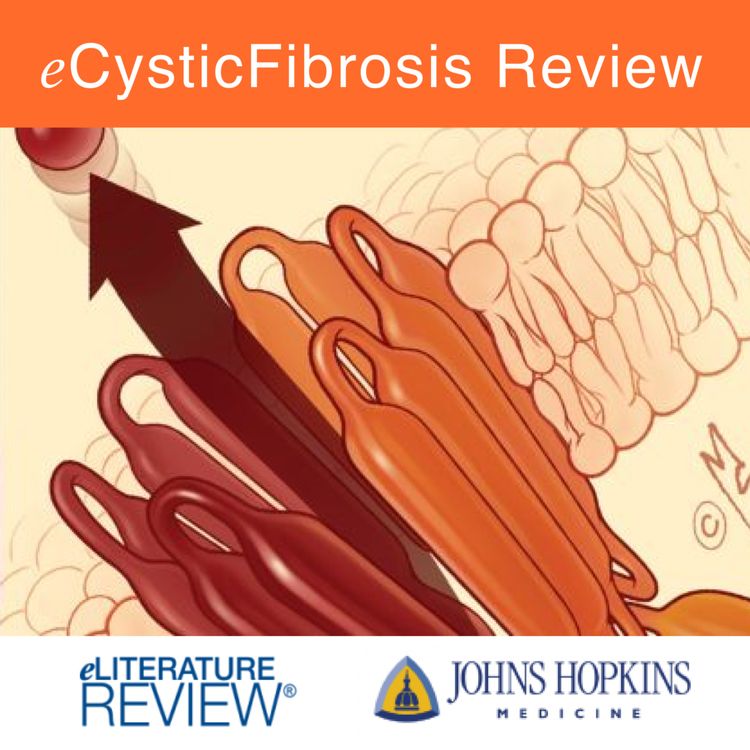
eCysticFibrosis Review
ETI (CFTR Triple Therapy): Clinical Opportunities
Season 10, Ep. 6
•
The advent of triple CFTR modulator therapy – ETI (elexacaftor/tezacaftor/ivacaftor) — poses a number of clinical questions. Are three agents really better than two? For which patients, in what circumstances? What does the CF Team need to understand to ensure their patients get maximum benefit?
Join us as we explore these questions with guest author Professor Edward McKone MD, from St. Vincent’s University Hospital and University College Dublin School of Medicine, in this eCysticFibrosis Review podcast.
Take our post-test to claim CME credits.
Read this podcast's companion newsletter here.
More episodes
View all episodes
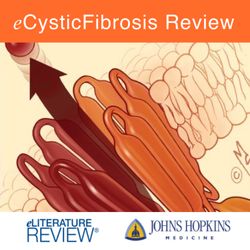
Cystic Fibrosis Life Transitions
13:27|Until the advent of highly effective CFTR modulator medications, cystic fibrosis was considered a pediatric disease, because most individuals did not survive into adulthood. Now, with more adults living with CF than children, priorities must change. In these interviews, we discuss what transitions to a longer life with CF entails: from pediatric to adult care; from the possibilities of motherhood and the need for family planning; from adulthood into older age and the infirmities common to all aging adults.
8. CF and Diet and Nutrition: The Changing Paradigm
38:22||Season 7, Ep. 8Individuals with cystic fibrosis — adults as well infants and children — have long struggled to gain and maintain their weight. But how has the current widespread use of highly effective modulator treatments — HEMT — changed that situation? That’s the focus of this eCysticFibrosis Review Special Edition: CF and Nutrition and HEMT. The first part of this program presented an evidence-based Expert Commentary on the current status of weight gain, obesity, and nutrition among people with CF by guest author Katie McDonald, PhD, MS, RDN, CSP, a clinical dietitian at Primary Children's Medical Center in Salt Lake City. The second part is a podcast interview, providing further in-depth discussions between Katie McDonald and three top CF nutrition experts. Take our post-test to claim CME credits.Read this podcast's companion newsletter here.
4. Pulmonary Exacerbations and IV Antibiotics
18:44||Season 10, Ep. 4Managing pulmonary exacerbations in people with cystic fibrosis: is there high-grade evidence to support best practices? How helpful is the most current guidance? Does the recent research challenge the current standard of care? Join us for this eCysticFibrosis Review podcast, as Dr. D.B. Sanders from the Indiana University School of Medicine explains how these questions can affect clinical care. Take our post-test to claim CME credits.Read this podcast's companion newsletter here.
2. Race, Ethnicity, and Cystic Fibrosis
22:59||Season 10, Ep. 2Race and ethnicity. How do they affect a patient’s ability to receive a timely and accurate cystic fibrosis diagnosis? How do the social determinants of health limit access to appropriate CF treatment and produce poorer outcomes? That’s what we’re here to talk about today with Dr. Jennifer Taylor-Cousar from National Jewish Health and Children’s Hospital Colorado in this eCysticFibrosis Review podcast. Take our post-test to claim CME credits.Read this podcast's companion newsletter here.
13. The Pancreas, Malnutrition, and CFTR Modulators
14:24||Season 9, Ep. 13Pancreatic insufficiency. In children with CF, it’s been associated with delayed development and increased odds of developing severe lung disease. How can it be more accurately diagnosed? And what does the evidence say about the effects of treatment with CFTR modulators?That’s what we explore in this case-based podcast, with Dr. Vikesh Singh, Associate Professor of Medicine and Director of the Pancreatitis Center at Johns Hopkins Medical Institutions. Take our post-test to claim CME credits.Read this podcast's companion newsletter here.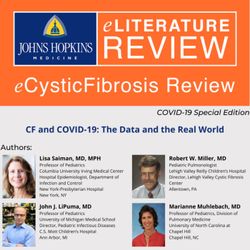
CF and COVID-19: The Data and the Real World
34:50|Do cystic fibrosis lung impairment and the COVID-19 virus create the disastrous combination they would seem to make? What do the currently published data say about the clinical effects of the pandemic on people living with CF? How have the safety-mandated lockdowns and clinic closures affected CF care teams’ ability to effectively maintain their patients’ health? What information out there is proved, what’s speculation, and what is simply unknown? These questions are the focus of this eCysticFibrosis Review Special COVID Edition issue. Lisa Saiman MD, MPH, professor of pediatrics at Columbia University Irving Medical Center, analyzes the current literature investigating these questions and then speaks directly with front-line clinicians about what they’re experiencing as they navigate a disrupted health care system. In addition to presenting her analysis of the data-driven evidence describing the effects of the COVID-19 virus on people with cystic fibrosis, Dr. Saiman also spoke directly with front-line CF clinicians to learn about what they’ve been experiencing as they work to maintain effective patient care. Transcripts of these interviews can be accessed throughout the newsletter.Take our post-test to claim CME credits.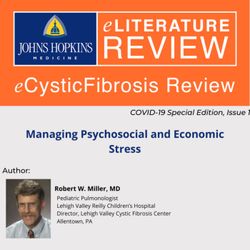
Managing Psychosocial and Economic Stress
06:14|Do cystic fibrosis lung impairment and the COVID-19 virus create the disastrous combination they would seem to make? What do the currently published data say about the clinical effects of the pandemic on people living with CF? How have the safety-mandated lockdowns and clinic closures affected CF care teams’ ability to effectively maintain their patients’ health? What information out there is proved, what’s speculation, and what is simply unknown? These questions are the focus of this eCysticFibrosis Review Special COVID Edition issue.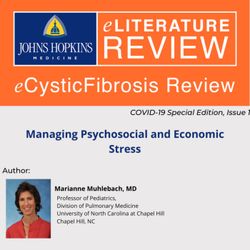
Overcoming Shutdown Challenges
08:37|Do cystic fibrosis lung impairment and the COVID-19 virus create the disastrous combination they would seem to make? What do the currently published data say about the clinical effects of the pandemic on people living with CF? How have the safety-mandated lockdowns and clinic closures affected CF care teams’ ability to effectively maintain their patients’ health? What information out there is proved, what’s speculation, and what is simply unknown? These questions are the focus of this eCysticFibrosis Review Special COVID Edition issue.